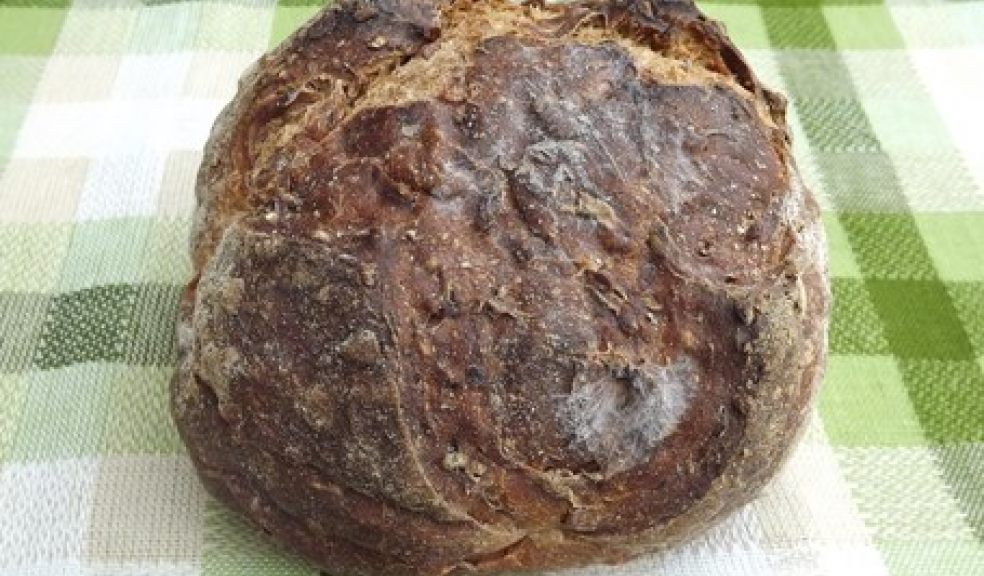
Our daily bread - but maybe not tomorrow?
I am not normally alarmist, but increasingly find myself very concerned that our global food systems are under exceptional pressures. We might even say four frightening horse riders stalk our world at this time…
The first is called ‘Global Warming’.
A few months ago ASDA announced that it may not be able to guarantee supply of 95% of the foodstuffs it now sells in twelve months time. Most of the fresh produce sold in their shops is already at risk from climate change. The company’s director for sustainable business suggested that it is imperative that supermarkets start to think strategically about how to cope with the impacts of rising emissions. Weather unpredictability and extreme conditions are becoming real threats to producing food.
The second rider is ‘Energy Security’.
A massive challenge to our energy-hungry lifestyles is the strong possibility that we shall experience power cuts, especially in South West England in the next few years. Increased demand, lack of investment in new electricity sources and an ageing national grid will combine to disrupt supplies to our homes and workplaces. According to Offgen, by 2015, the national grid will not be able to provide sufficient energy for required consumption, and “there may have to be controlled disconnections of homes and businesses” (October 2012).
This also has implications for feeding ourselves as the distribution, storage and cooking of food is all energy-intensive.
Thirdly, ‘Species Extinction’.
We know human industrial activity is destroying animal and plant life at an unprecedented rate. For instance, there are well-founded concerns about the honey bees – not only the death by poison of individual bees but the additional possibility of ‘colony collapse disorder’.With almost a third of global farm output depends on animal pollination, largely by honey bees, this has enormous consequences for food security across the planet. No pollination – no fruit. No fruit – hunger, conflict, and, for some plants, no seeds for the next year… We lose flora and fauna thus upsetting ecological balances and which may conclude with disastrous consequences for us all.
Finally, the rider known as ‘Food Poverty’.
Very close to home are women, children, men, families even, who already face health and well-being difficulties because of poor diet, malnutrition and in some cases a lack of basic good food. Rising food and energy costs, stagnant wages, reduced job security and problematic changes to the welfare system – all of these factors have led to a continuous increase in the demand for food banks and the vital services they now provide. In 2013/14, Exeter Food Bank (one of 28 in Devon) provided food for 3,981 people – an increase of more than around 1,000 ‘mouths’ over the previous year. They say these numbers show no sign of decreasing any time soon. An indicative figure from a Devon Food Working Group suggests maybe around 20,000 at risk vulnerable people because of poor food across the County.
However, whilst we still have food on our plates in front of us, we would rather just take our food supplies for granted. Forget scaremongering and talk of scary horse riders. It’s much easier and convenient.
Let’s tackle food shortages, for whatever reason, when they happen. This kind of thinking fits well into our care-free, laissez-faire economic and social culture.
The problem is that if we do hit severe problems, it will be too late. The nature of growing and producing most foods is that it needs time and it is seasonal.
As a species, human beings have advanced significantly by being able to store food and distribute stocks when they’ve been needed. But the seriousness and scale of some of these issues is already stretching communities and countries. As the Mayor of New Orleans reminded us a few years ago (after Hurricane Katrina hit his city), ‘we are all only 3 meals away from social breakdown’.
Those with a stronger sense of ethics, especially people of faith and belief, hold that more equitable and just society has to be centred on a fair sharing of good food.
For Christians, ‘Give us this day our daily bread’ is an earthy plea in the Lord’s Prayer, followed by ‘and forgive us our debts’ – a recognition that we can systematically stop others from eating well because of our own selfishness. Those caught up in debt and poverty may not have adequate meals.
‘Do this in remembrance of me…’ is a reminder that it is in the sharing and eating of food that we can become more fully human. This is an outward and visible sign pointing to inner spiritual meaning. I think it is also a powerful message about equal distribution in the face of greed and possessiveness.
It is high time to recognise that we have responsibilities to care for one another and ourselves in our attitudes and our actions about food. The Russian writer Nicolai Berdyaev identified this when he said,‘Bread for myself is a material question. Bread for my neighbour is a spiritual one.’
For all sorts of reasons we need to take food and eating more seriously – to improve our health and wellness; to respect nature and reduce damage to the earth; to be more sociable; to celebrate together; and to better understand how we connect with all life.
Maybe it’s a pity our political leaders don’t often share this kind of message with us!!
This article originally appeared in Devon Churches Green Action News, June 2014













